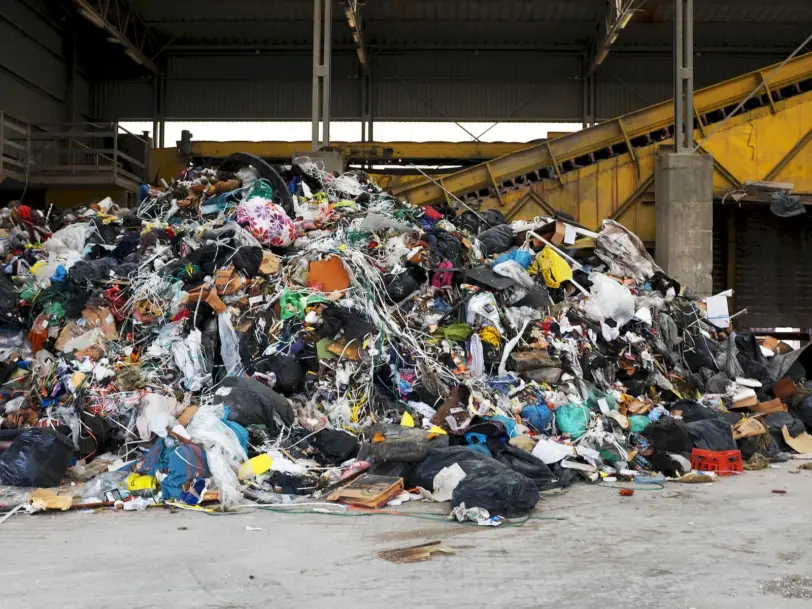What are non-recyclable items?

The slogan “reduce, reuse, recycle,” popularized during the environmental movement of the 1970s, has never been more important. However, there is confusion about what can and cannot be recycled. Rules and regulations vary by country, here are some of the items that cannot be recycled…
Throw away or recycle? It’s not always clear. Some materials cannot be recycled but can be reused. Other items cannot enter normal recycling, but can be collected by special services. We’ve compiled a list of common household items that cannot be recycled.
Oil Cardboard
That gooey, delicious pizza you enjoyed last weekend likely came in a mostly recyclable cardboard box. However, if the box is too greasy or contaminated with food waste, such as cheese stuck to the lid, it cannot be recycled. This is because oil and food particles can damage recycling equipment or contaminate other materials in the bin. A little grease and crumbs are okay, but if the can is soaked with cheese, put it in the compost bin or trash.
Bottle caps
Most caps and lids on water bottles, soda bottles, detergent bottles, and similar containers are made of polypropylene, also known as plastic #5, and are typically not recyclable.
Packaging Filling Foam
Packaging filler foams are made from expanded polystyrene and are therefore not recyclable. If you receive a pack of foam on delivery, consider reusing them around the house rather than sending them to a landfill; Many commercial shipping services will also accept clean packing fills from consumers.
Ceramic or Oven Suitable Serving Parts
Ceramic and ovenproof plates, baking dishes, baking dishes and serving pieces are designed to withstand high heat, so they have a higher melting point than traditional glass. That’s why most recycling centers will reject these handy kitchen essentials.
Styrofoam or Polystyrene Containers
Styrofoam and polystyrene containers (egg cartons, fast food boxes, coffee cups, and the like) are not recyclable and, worse, do not biodegrade in landfills. Many restaurant chains have moved away from Styrofoam and polystyrene packaging, and homeowners should consider doing the same.
Plastic Straws and Utensils
Plastic cups and some disposable straws contain #6 plastic (polystyrene). Since recycling this material costs a lot of money, most municipalities will not accept your plastic service items. But before you throw them away, consider reusing them for DIY projects!
Aerosol cans
Even though aerosol cans are made of metal, the pressurized contents can damage recycling machines. As a result, these items should be thrown away with the regular trash.
Plastic Bags
Plastic shopping bags and plastic wrap are generally not accepted for recycling because the lightweight material can tangle, clog and damage machines used in recycling centres.
Windows, Mirrors or Broken Glass
While almost all glass jars and containers are recyclable, not all glass is created equal. Homeowners should think twice before trying to recycle window glass, light bulbs, fluorescent light tubes, mirrors, plate glass, glasses, glasses, vases, and glass artwork.
Hardcover Books
Because books are made of paper, many people assume that they are completely recyclable. However, the solid covers of hardcover books contain non-paper components and should therefore be removed before throwing this novel in the trash.
Plastic Shower Curtains
Most plastic shower curtains and liners are made with polyvinyl chloride (PVC). Due to the chemicals used in PVC production, these products cannot be degraded and recycled. However, they’re ripe for reuse: Try giving curtains new life as outdoor tablecloths, drop cloths, drawer liners, or craft supplies.
Medical waste
Needles, plastic syringes, and prescription containers are classified as biohazards and therefore cannot be recycled. Contact your doctor, pharmacy or local hospital for information about disposal options.
Waxed Paper and Cardboard
Do you buy broth and orange juice in cartons? This handy packaging should not be recycled because the wax fibers in the coating will not break down properly. Other items with a waxy coating, such as waxed paper, silicone baking paper, waxed baking cups, and most frozen food containers, should also be thrown in the trash; However, some municipalities accept cardboard, so check with your local sanitation department first.
Old TVs and Electronics
Some donation centers will not accept non-working electronic devices, including old cathode ray tube TVs.
Cleaning products
Check the label before throwing away cleaning products. Water-soluble formulas can be mixed with water and poured down the drain. Solid products (scouring pads, sponges, disposable dusters) can be thrown out. Bleach or anything containing ammonia (in small amounts) should be flushed down the toilet or shared and consumed if possible. For other cleaners, contact the manufacturer’s toll-free number or call your local hazardous waste disposal center.
Treated Wood
If you are completing a home renovation project, you cannot recycle wood treated with any finish. Chemicals used in wood finishes can contaminate water supplies if not disposed of properly. Burning treated wood is generally prohibited unless you have permission. Small amounts of processed wood may be taken to a landfill; For larger quantities of scrap wood, call your city’s waste management team first.
Bubble wrap
Like plastic bags, bubble wrap cannot be placed in recycling. However, grocery stores often have special recycling bins for plastic packaging, including bags and bubble wrap.
Clothes hangers
Metal hangers have an odd shape that can get caught in recycling equipment. Plastic hangers, meanwhile, are often made from mixed materials, so they can’t be placed in single-stream recycling bins. And the wooden hangers are processed so they cannot be recycled. Many dry cleaners and thrift stores will accept donated hangers. Broken or unused hangers should be thrown away or used for other purposes.
Mattresses
Throwing away mattresses should be a last resort. They clog landfills and contribute to greenhouse gas emissions as they decompose. While recycling services generally won’t take an old mattress, there are a variety of options for mattress recycling. Many cities offer special bed donation services, or you can also contact a homeless shelter.
Expired and Unused Medicines
Unused and expired drugs are products that cannot be recycled.